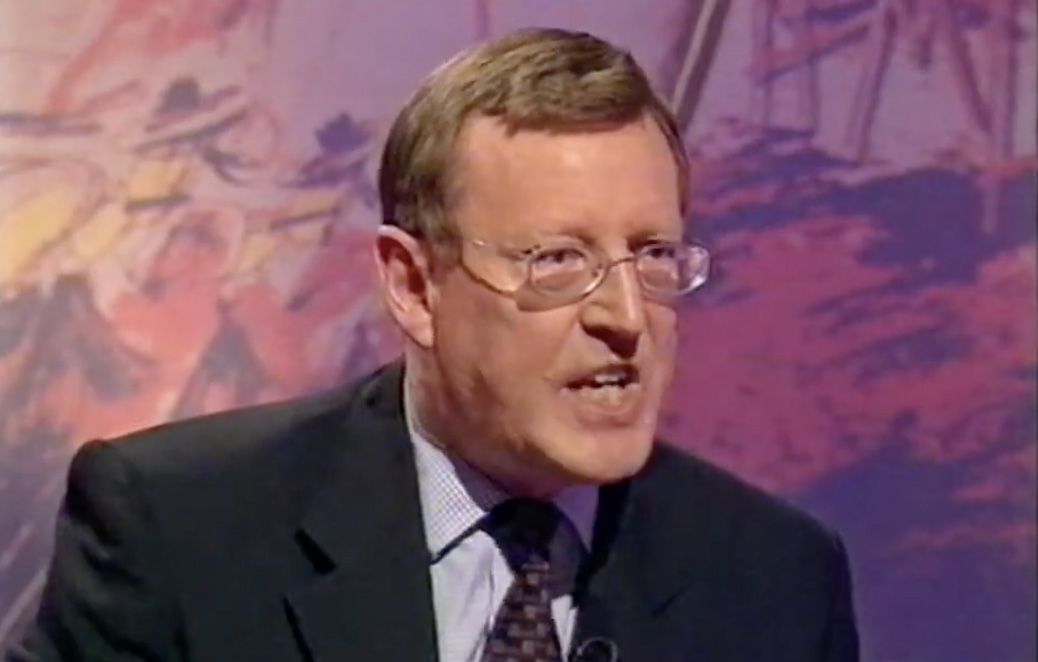IN 1998, a short while after the signing of the Good Friday Agreement I was driving through North Antrim on my way to work. As I drove, my eye was caught by some freshly-painted lettering on the side of a barn. In bold capitals it said: ‘WELL DONE DAVID’. It was difficult to know whether it was a congratulation or a condemnation, since the David in question was obviously David Trimble. The man himself, who was buried this week, was equally ambiguous.
He had one thing going for him: Ian Paisley detested him, denounced him as a traitor, a Lundy, an unspeakable whose name he wouldn’t dignify by mention. Trimble’s sin was that he had signed the Good Friday Agreement. A few years later, of course, Paisley went into government with Sinn Féin and Martin McGuinness.
I once interviewed Trimble – fadó fadó. I was kept sitting in an outer area while Trimble passed me with a small nod, whistlng an operatic aria. I remember nothing of the interview beyond his assessment of a particular politician. “So if he was a student of yours what would you give him – a B, a B+?” “Yes, a Beta plus,” was his answer, thus making clear that he knew Greek even if I didn’t.
He never seemed quite comfortable with people, which made his defeat of John Taylor for leadership of the UUP all the more surprising. He looked like a man more at home with books and theory than campaign manifestos and people. His Nobel Prize speech, which followed John Hume’s, revealed a good deal about the man.
While there were lots of other people throughout the world equally deserving of this prize, he said, he wouldn’t let that prevent him picking up the medal and the cheque. “And the way politics work in Northern Ireland – if John Hume has a medal, it is important that I have one too.”
It was a shrewd and accurate point but somehow clumsy in a Nobel Prize acceptance speech.
He followed this up with a somewhat clunky criticism of idealism in politics: “I resist the kind of rhetoric which substitutes vapour for vision. Instinctively, I identify with the person who said that when he heard a politician talk of his vision, he recommended him to consult an optician!”
Well done again, David.
He had ginger hair and the ruddy complexion that goes with it. I used wonder how his students at Queen’s dealt with him, given that he was hypersensitive and could fall into a kind of prim rage over the smallest things.
Former US President Bill Clinton has said people today are leading better lives because of the sacrifices made by David Trimble https://t.co/6RspSNJSX5
— RTÉ News (@rtenews) July 26, 2022
But others spoke more positively about him. Bill Clinton said: “He made the hard choices over the politically expedient ones,” Tony Blair praised him, John Major praised him, Bertie Ahern said that without his courage there mightn’t have been a Good Friday Agreement.
The term “political giant” was used more than once. Yet any time you saw him on TV with John Hume or Seamus Mallon in particular, it was fairly clear they were a few steps short of being in love with him.
Fittingly, Lord Trimble spent his final years in England, campaigning for Brexit, campaigning against the Protocol, attending the opera, taking barge holidays on England’s canals. Another lord, Gerry Fitt, showed a similar fondness for English barges and canals in his declining years.
In 2004, columnist Eilis O’Hanlon quoted a biography of Trimble, in which he allegedly said of Gerry Adams: “I hate that man – I hate that man... Despicable!”
In recent days Gerry Adams spoke of David Trimble: “David's contribution to the Good Friday Agreement and to the quarter-century of relative peace that followed cannot be underestimated. I want to extend my sincerest condolences to Daphne Trimble, their daughters Victoria and Sarah, their sons Richard and Nicholas and to the entire family circle. Ar dheis Dé go raibh a anam dilis.”
Spot the difference.









